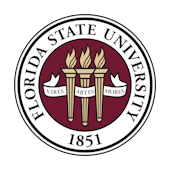Professor Morley joined FSU Law in 2018, and teaches and writes in the areas of election law, constitutional law, remedies and the federal courts.
Before joining FSU Law, Professor Morley was an associate professor at Barry University School of Law. Prior to his experience in academia, he held numerous positions in both private practice and government, including as special assistant at the Office of the General Counsel, Department of the Army, at the Pentagon, clerk for Judge Gerald B. Tjoflat, of the U.S. Court of Appeals for the Eleventh Circuit, and as an associate at Winston & Strawn, LLP, in Washington, D.C.
Professor Morley earned his J.D. from Yale Law School in 2003, where he was a senior editor on the Yale Law Journal, served on the moot court board and received the Thurman Arnold Prize for Best Oralist in the Morris Tyler Moot Court of Appeals.
Select Recent Publications
The Disparate Impact Canon, U. Penn. L. Rev. Online (forthcoming 2018)
Spokeo: The Quasi-Hohfeldian Plaintiff and the Non-Federal Federal Question, George Mason L. Rev. (forthcoming 2018)
Prophylactic Redistricting? Section 2 of the Voting Rights Act and the New Equal Protection Right to Vote, WM. & Mary L. Rev. (forthcoming 2018)
The Implications of Modern Equity (work in progress)
Categorizing Nationwide Injunctions (work in progress)
Precedent in Three-Judge Courts (work in progress)
Accidental Government (work in progress)
Election Emergencies: Voting in the Wake of Natural Disasters and Terrorist Attacks, 67 Emory L.J. 545 (2018)
The Federal Equity Power, 59 B.C. L. Rev. 217 (2018)
Nationwide Injunctions, Rule 23(b)(2), and the Remedial Powers of the Lower Courts, 97 B.U. L. Rev. 615 (2016)
Reforming the Contested Convention: Rethinking the Presidential Nomination Process, 85 Fordham L. Rev. 1073 (2016)
Dismantling the Unitary Electoral System? Uncooperative Federalism in State and Local Elections, 111 NW. U. L. Rev. Online 103 (2016)
De Facto Class Actions? Plaintiff- and Defendant-Oriented Injunctions in Election Law, Voting Rights and Other Constitutional Cases, 39 Harv. J.L. & Pub. Pol'y 487 (2016)
Non-Contentious Jurisdiction and Consent Decrees, 19 U. Penn. J. Const. L. Online 1 (2016)
Contingent Constitutionality, Legislative Facts, and Campaign Finance, 43 Fla. St. U. L. Rev. 679 (2016)
The New Elections Clause, 91 Notre Dame L. Rev. Online 79 (2016)
The Intratextual Independent “Legislature” and the Elections Clause, 109 NW. U. L. Rev. 847 (2015); 109 NW. U. L. Rev. Online 131 (2015) – quoted in Arizona State Legislature v. Arizona Indep. Redistricting Comm’n, 135 S. Ct. 2652, 2679 (2015) (Roberts, C.J., dissenting)
Remedial Equilibration and the Right to Vote Under Section 2 of the Fourteenth Amendment, 2015 U. Chi. L. Forum 279
Reverse Nullification and Executive Discretion, 17 U. Pa. J. Const. L. 1283 (2015)
Rethinking the Right to Vote Under State Constitutions, 67 Vand. L. Rev. En Banc 189 (2014)
Public Law at the Cathedral: Enjoining the Government, 35 Cardozo L. Rev. 2453 (2014)
Enforcing Equality: Statutory Injunctions, Equitable Balancing Under eBay, and the Civil Rights Act of 1964, 2014 U. Chi. L. Forum 177
Avoiding Adversarial Adjudication, 41 Fla. St. U. L. Rev. 291 (2014)
Consent of the Governed or Consent of the Government? The Problem of Consent Decrees in Government-Defendant Cases, 16 U. Penn. J. Const. L. 637 (2014)
Experience
-
–presentAssistant professor of law, Florida State University
- Tallahassee, FL
- Website
- Article Feed
- Joined


